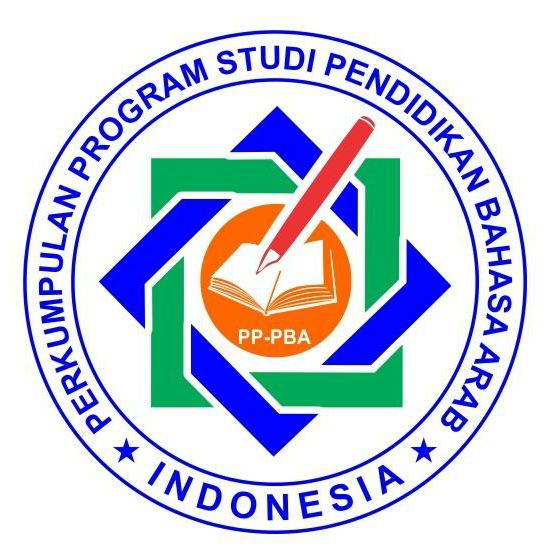Abū al-Barakāt al-Bagdādī wa al-Salafiyyah Ibn Taimiyyah Anmūżajā
DOI:
https://doi.org/10.37680/aphorisme.v5i2.5046Keywords:
Destiny and destiny, rationalism, theory of origins, salafismAbstract
Our purpose of this study is to demonstrate the extent of his influence on the Sheikh of Salafism, Ibn Taymiyyah al-Harrani, as Ibn Taymiyyah is considered one of the most prominent figures influenced by the philosophy of Abu al-Barakat al-Baghdadi. Al-Baghdadi left a great impact on the Salafi approach in general and on Ibn Taymiyyah in particular. Our method in this study is to present the issues in which Ibn Taymiyyah was influenced by Abu al-Barakat al-Baghdadi, citing the texts contained in his books, while mentioning the texts in which he praised al-Baghdadi. One of the results of this study was that Ibn Taymiyyah admired Al-Baghdadi’s philosophical approach, attached great importance to his philosophy, and defended him strongly in his writings. He also often showered him with praise and great titles, despite the fact that Ibn Taymiyyah criticized Al-Baghdadi on some issues. Especially in the divine.
References
Akbarnia, L., & Suleman, F. (2023). Transforming Curatorial Practices for the Global Museum: Reflections on the British Museum’s Albukhary Foundation Gallery of the Islamic World. Journal of Material Cultures in the Muslim World, 3(2), 299–342. https://doi.org/https://doi.org/10.1163/26666286-12340034
Al-Dawoody, A., Winter, K. A., & Finegan, O. (2021). International Committee of the Red Cross (ICRC): Management of the dead under Islamic law. Forensic Science International: Reports, 3, 100196. https://doi.org/https://doi.org/10.1016/j.fsir.2021.100196
Al-Kauśarī. (1369). al-Muqaddimāt al-Khams wa al-‘Isyrūun fī Iśbāt Wujūdillah wa Waḥdāniyyātih min Dalālah al-Ĥāirīn li Mūsā ibn Maymūn, Syarh al-Ĥakīim al-Tabrīzī, Taqdīm wa Ta’līq, Muḥammad Zāhid al-Kauśarī.
Al-Kauśarī. (2005). Min ‘Ibri al-Tārīkh fī al-Kaid li al-Islām, Muḥammad Zāhid al-Kauśarī, Al-Maktabah al-Azhariyyah li al-Turāś, Kairo.
Al Bayati, A. M. T., & Karadeiz, O. K. (2021). Creation Theory between Generosity and Sudur According to Abu Al-Barakat Al-Baghdad. Adab AL Rafidayn, 51(87.1), 649–674.
Aliallahbedashti, A., & Khan Abadi, K. (2019). A Critical Study of Ibn Taymiyya’s Approach to Interpreting Ambiguous Verses of the Qur’an ِِAccording to the Views of Allāma Ṭabāṭabā’ī. Journal Of Islamic Denominations, 6(11), 187–207.
Atay, R. (2015). The Importance of Aesthetics in Theological Education: A Philosophical Reading of the Recent Discussions in the Turkish Case. Procedia - Social and Behavioral Sciences, 174, 1255–1261. https://doi.org/https://doi.org/10.1016/j.sbspro.2015.01.745
Ayad, M. A. M. I. M. (2022). The Philosophy of Judgment and Destiny between Abi Al-Barakat Al-Baghdadi (d. 547 AH) and the Theologians. The Bulletin of the Faculty of Islamic and Arabic Studies for Girls in Alexandria, 38(1), 169–243.
Bazzano, E. A. (2015). Ibn Taymiyya, Radical Polymath, Part 2: Intellectual Contributions. Religion Compass, 9(4), 117–139. https://doi.org/10.1111/rec3.12115
Ben Ahmed, F. (2019). Ibn Rushd in the Ḥanbalī Tradition. Ibn Taymiyya and Ibn Qayyim al‐Jawziyya and the Continuity of Philosophy in Muslim Contexts. The Muslim World, 109(4), 561–581.
Çağrıcı, M. (1994). Ebü’l Berekât El-Bağdâdî. TDV İslâm Ansiklopedisi, İstanbul.
Carvajal López, J. C. (2024). Asia, Southwest: Bilād al-Shām, Iraq and the Arabian Peninsula – The Islamic Period (E. Nikita & T. B. T.-E. of A. (Second E. (Second E. Rehren (eds.); pp. 554–565). Academic Press. https://doi.org/https://doi.org/10.1016/B978-0-323-90799-6.00194-4
Chaharborj, M. S. (2021). An Investigation into the Essence of Islamic Philosophy. International Journal of Multicultural and Multireligious Understanding, 8(10), 362. https://doi.org/10.18415/ijmmu.v8i10.3073
Effendi, R. (2021). Sufism in the Perspective of Ibn Khaldun and Ibn Taimiyah: A Comparative Study. Jurnal Fuaduna: Jurnal Kajian Keagamaan Dan Kemasyarakatan, 5(1), 70–82.
Eichner, H. (2011). The Arabic, Hebrew and Latin Reception of Avicenna’s Metaphysics. In D. N. Hasse & A. Bertolacci (Eds.), The Arabic, Hebrew and Latin Reception of Avicenna’s Metaphysics. DE GRUYTER. https://doi.org/10.1515/9783110215762
Feise-Nasr, M. (2023). Islam and Ecology. Religion and Development, 2(2023), 155–161. https://doi.org/https://doi.org/10.30965/27507955-20230021
Hamdan, M. N., Abdul Jalil, R., Ramli, M. A., Ramli, N., Ibrahim, M. N. A., Ab Rahman, M. F., Abdullah Thaidi, H. ‘Azeemi, & Abd Rahman, N. N. H. (2024). A Review of the Discussions on Cultivated Meat from the Islamic Perspective. Heliyon, 10(7), e28491. https://doi.org/https://doi.org/10.1016/j.heliyon.2024.e28491
Hoover, J. (2022). Temporality and Eternity. In M. Schmücker, M. T. Williams, & F. Fischer (Eds.), Temporality and Eternity. Nine Perspectives on God and Time. De Gruyter. https://doi.org/10.1515/9783110698190
Islam, J. S., & Eryiğit, A. (2022). Islam and the State in Ibn Taymiyya. Routledge. https://doi.org/10.4324/9781003228035
Jaser, N., & Ahaddour, C. (2023). Mapping the Islamic Ethical Discourse on Prenatal Diagnosis and Termination of Pregnancy: A Methodological Analysis. Journal of Islamic Ethics, 7(1), 177–201. https://doi.org/https://doi.org/10.1163/24685542-20230091
Karadeiz, O. (2021). Creation Theory between Generosity and Sudur According to Abu Al-Barakat Al-Baghdadi. Adab AL Rafidayn, 51(87.1).
Kiliyamannil, T. J. (2023). Neither Global Nor Local: Reorienting the Study of Islam in South Asia. Asian Journal of Social Science, 51(4), 244–251. https://doi.org/https://doi.org/10.1016/j.ajss.2023.07.002
Luz, N. (2020). Pilgrimage and Religious Tourism in Islam. Annals of Tourism Research, 82, 102915. https://doi.org/https://doi.org/10.1016/j.annals.2020.102915
Mahmudulhassan, M. (2024). Exploring the Essence, Importance, and Distinctive Attributes of Islamic Culture: An In-depth Cultural Analysis. Bulletin of Islamic Research, 2(3), 205–222. https://doi.org/https://doi.org/10.69526/bir.v2i4.25
Mansouri, F., & Keskin, Z. (2019). Introduction: Framing the Debate around Islamic Theology, Radicalisation and Violent Extremism. In Contesting the Theological Foundations of Islamism and Violent Extremism (pp. 1–12). Springer.
Mattila, J. (2023). Islamic Ethics as Educational Discourse: Thought and Impact of the Classical Muslim Thinker Miskawayh (d. 1030), edited by Sebastian Günther and Yassir El Jamouchi. Journal of Islamic Ethics, 7(1), 236–239. https://doi.org/https://doi.org/10.1163/24685542-20230087
Miah, S., Mangera, A., Osman, N. I., Venugopal, S., Catto, J., & Rosario, D. (2019). Islam and the Urinary Stoma: A Contemporary Theological and Urological Dilemma. European Urology Focus, 5(2), 301–305. https://doi.org/https://doi.org/10.1016/j.euf.2017.06.015
Mirza, Y. Y. (2014). Was Ibn Kathīr the ‘Spokesperson’ for Ibn Taymiyya? Jonah as a Prophet of Obedience. Journal of Qur’anic Studies, 16(1), 1–19.
Mirza, Y. Y. (2023). ‘A Precious Treatise’: How Modern Arab Editors Helped Create Ibn Taymiyya’s Muqaddima fī Uṣūl al-Tafsīr. Journal of Qur’anic Studies, 25(1), 79–107.
Miswari, M. (2023). The Essence of Ontology in Islamic Philosophy. ESENSIA: Jurnal Ilmu-Ilmu Ushuluddin, 24(1), 84–97. https://doi.org/10.14421/esensia.v24i1.4057
Murad, M. M. (2023). The Western Orientation of Environmentalism in the Islamic World Today. Religion and Development, 2(2023), 41–62. https://doi.org/https://doi.org/10.30965/27507955-20230015
Naseh, A. A. (2013). An Analysis and Criticism of Ibn Taymiyyah’s Intellectual Principles in Interpreting the Quran. Journal of Philosophical Theological Research, 14(55–56), 167–188. https://doi.org/10.22091/PFK.2013.64
Pierre, S. V. (2023). Can We Flee the Plague? A Theological, Moral and Practical Issue in the Early Islamicate World. Journal of Islamic Ethics, 7(1), 51–66. https://doi.org/https://doi.org/10.1163/24685542-12340071
R’boulR’boul, H. (2021). Alternative Theorizing of Multicultural Education: an Islamic Perspective on Interculturality and Social Justice. Journal for Multicultural Education, 15(2), 213–224. https://doi.org/https://doi.org/10.1108/JME-07-2020-0073
Renima, A., Tiliouine, H., & Estes, R. J. (2016). The Islamic Golden Age: A Story of the Triumph of the Islamic Civilization. In The State of Social Progress of Islamic Societies (pp. 25–52). Springer International Publishing. https://doi.org/10.1007/978-3-319-24774-8_2
Saada, N. (2020). Perceptions of Democracy Among Islamic Education Teachers in Israeli Arab High Schools. The Journal of Social Studies Research, 44(3), 271–280. https://doi.org/https://doi.org/10.1016/j.jssr.2020.05.003
Sayyidibī. (1996). Abu’l-Berekat al-Baghdādi, wa falsafah al-Ilāhiyyah. Dar-Kutub al-‘Ilmiyyah.
Shehata, M. M. (2020). Abu al-Barakat al-Baghdadi on Divine Foreknowledge and Human Free Will. Nazariyat, 6(2).
Spiegel, E. (2022). Theology of Peace (L. R. B. T.-E. of V. Kurtz Peace, & Conflict (Third Edition) (ed.); pp. 417–429). Academic Press. https://doi.org/https://doi.org/10.1016/B978-0-12-820195-4.00244-2
Syarfun, A. (2003). Allah wa al-‘Ālam wa al-Insān fī al-Fikr al-Islāmī. Libanon. Dar-Kutub al-‘Ilmiyyah.
Taymiyah, I. (1426). Bayān Talbīs al-Juhmiyyah fī Ta’sīs Bid’ihim al-Kalāmiyyah, Taḥqīq, Majmū’ah min al-Muḥaqqiqīn. Dar-Kutub al-‘Ilmiyyah.
Taymiyyah, I. (1429). al-Rad ‘alā al-Syāẓilī fī Hiẓbīh, wa mā Şannafahu fī Adāb al-Ṭarīq, Taḥqīq ‘Alī ibn Muḥammad al-‘Imran. Dar-Kutub al-‘Ilmiyyah.
Taymiyyah, I. (1986). Manhaj al-Sunnah al-Nabawiyyah, Taḥqīq, Muḥammad Rasyād al-Sālim. Dar-Kutub al-‘Ilmiyyah.
Taymiyyah, I. (1997a). Dar’u Ta’āruḋ al-‘Aql wa al-Naql, Taḥqīq ‘Abd al-Laṭīf ‘Abd al-Raḥmān. Dar-Kutub al-‘Ilmiyyah.
Taymiyyah, I. (1997b). Majmū’ al-Fatāwā, Taḥqīq ‘Abd al-Raḥmān Muḥammad al-Qāsim. Dar-Kutub al-‘Ilmiyyah.
Taymiyyah, I. (2001). Jāmi’ al-Rasāil, Taḥqīq, Muḥammad Rasyād al-Sālim. Dar-Kutub al-‘Ilmiyyah.
Vicente, P. C., & Vilela, I. (2022). Preventing Islamic Radicalization: Experimental Evidence on Anti-Social Behavior. Journal of Comparative Economics, 50(2), 474–485. https://doi.org/https://doi.org/10.1016/j.jce.2021.11.001
Vieira, M., Nabais, P., Angelin, E. M., Araújo, R., Lopes, J. A., Martín, L., Sameño, M., & Melo, M. J. (2019). Organic Red Colorants in Islamic Manuscripts (12th-15th c.) Produced in al-Andalus, Part 1. Dyes and Pigments, 166, 451–459. https://doi.org/https://doi.org/10.1016/j.dyepig.2019.03.061
Woodward, M. R. (2015). Islam: Asia (J. D. B. T.-I. E. of the S. & B. S. (Second E. Wright (ed.); pp. 727–730). Elsevier. https://doi.org/https://doi.org/10.1016/B978-0-08-097086-8.84015-5
Downloads
Published
Issue
Section
License
Authors who publish with this journal agree to the following terms:
Authors retain copyright and grant the journal right of first publication with the work simultaneously licensed under a Creative Commons Attribution-NonCommercial 4.0 International License that allows others to share the work with an acknowledgement of the work's authorship and initial publication in this journal.
Authors are able to enter into separate, additional contractual arrangements for the non-exclusive distribution of the journal's published version of the work (e.g., post it to an institutional repository or publish it in a book), with an acknowledgement of its initial publication in this journal.
Authors are permitted and encouraged to post their work online (e.g., in institutional repositories or on their website) prior to and during the submission process, as it can lead to productive exchanges, as well as earlier and greater citation of published work.




.jpg)


